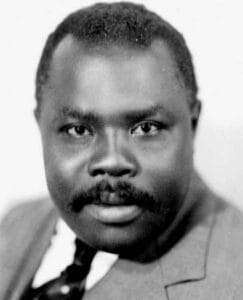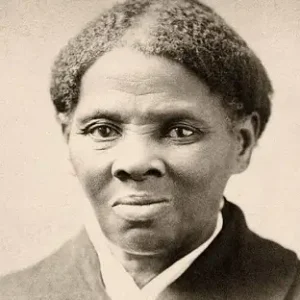While doing some research recently, I found out that a lot of people are searching for the question, “Who are African Diasporans?” If you are one of those persons, then you are in the right place. In this blog, we’ll look at the African Diaspora in depth.
The African Diaspora is a story of pain, resilience, and hope. It goes back centuries, beginning with the capture and shipment of African people from all over the African continent. Later on in history, a lot of Africans also migrated to various parts of the world.
So, who are African Diasporans? They are the descendants of Africans who were displaced due to slavery and colonization. Though many Africans have migrated all over the world for various reasons, for this blog, we’ll focus on the ones who were wrongfully displaced. They live across the world, particularly in the Americas, the Caribbean, Europe, and most other regions.
The history of the African Diaspora is both painful and inspiring. African Diasporans have shown us that regardless of our struggles, we have the capacity to overcome. Amidst the inequalities that we experience, we have shown the world that even if we have to try twice as hard, we are a strong people who can achieve anything.
Systems have been designed against us to keep us at the bottom, yet still, we rise above obstacles with great pride. The story of the African Diaspora in America and the Caribbean is one of courage, unity, and an unbreakable, unshakable spirit.
The History Of The African Diaspora
To answer the question “who are African diasporans?“, we must learn about their history. The African Diaspora began with the transatlantic slave trade, which is one of the darkest chapters in human history. Many millions of Africans were kidnapped and shipped to the Americas and the Caribbean, forced to work on plantations without a wage.
Though this chapter ended years ago, the trauma it caused still lingers today. Yet, despite these hardships, African Diasporans did not lose their identity. They have maintained an attachment to their true roots and culture, and have expressed this in their daily lives.
After slavery was abolished, African descendants faced new struggles of segregation, discrimination, and economic hardship. However, they never stopped fighting for equality. The history of the African Diaspora is filled with movements that shaped the modern world, from the Haitian Revolution in the Caribbean, to the Civil Rights Movement in the U.S. and anti-colonial struggles in Africa.
The Resilience of the African Diaspora
The next time you hear the question, “Who are African Diasporans?”, know that they are a people who have survived great oppression—and are still surviving. Yet for Diasporans, survival is just the beginning. African peoples refuse to remain broken or at the bottom of society.
We have built our own schools, churches, and businesses. We have also revolutionized music, giving birth to jazz, reggae, hip-hop, and blues—art forms that continue to influence cultures worldwide. Amidst the oppression we have endured, we have found ways to thrive in societies designed against us.
One of the most remarkable aspects of the African Diaspora’s resilience is the ability to transform pain into power. In every era, Black leaders have emerged to demand change, refusing to accept injustice. Their determination has shaped history and continues to inspire future generations.
The freedom Africans experience today was not achieved easily, nor was it given freely. Many African people gave their lives so that their children could have the opportunity to live. They endured unspeakable horrors—rape, lynchings, and brutal oppression—but they died as heroes. Today, their descendants walk in freedom because of their resilience and unmatched strength.
Famous Black Freedom Fighters





The fight for the freedom of African people around the world did not happen overnight. Many brave men and women risked their lives to challenge oppression. Nanny of the Maroons fought the British with strategy and strength, while Marcus Garvey waged his battle with intellect and divine oration.
Let’s look at some well known Black freedom fighters who changed the course of history:
Toussaint Louverture (Haiti): Toussaint led the Haitian Revolution, which was the first successful slave uprising against colonial powers. This revolution established the first independent Black republic in 1804, making Haiti the first independent caribbean nation.
Harriet Tubman (USA): She sacrificed herself to free hundreds of enslaved Africans through the Underground Railroad and later fought for women’s rights. Harriet Tubman is a wonderfully glorious woman.
Marcus Garvey (Jamaica): Marcus Garvey is a key figure in Pan-Africanism who is regarded as one of the greatest orators of the 21 century. Encouraging African descendants to return home was the core of Garvey’s message.
Kwame Nkrumah (Ghana): Kwame was a key figure in the independence movement of Africa. He pioneered the path for Ghana to become the first African nation to gain independence from colonial powers.
Nanny of the Maroons (Jamaica): Nanny is the epitome of fearlessness. This warrior woman was the leader of the Maroons. She used brilliant guerrilla warfare tactics to resist British colonial rule and secure freedom for her people.
Next time you hear the question “Who are African Diasporans?,” they are the descendants of freedom fighters who carry the same untamed and undying spirit. Freedom fighters proved that Africans would never accept oppression without resistance. Their sacrifices paved the way for the freedoms we have today, inspiring future generations to continue the fight for justice.
African Diaspora in America and the Caribbean
The African Diaspora in America and the Caribbean has played a crucial role in shaping modern culture. From music to food, African influence is everywhere. Some of the most renowned people are from the African diaspora, who inscribe their talents on world history.
In the U.S., African Americans led the Civil Rights Movement, fought for justice, and created cultural revolutions through music, sports, and literature. The Caribbean, home to many African descendants, has been an example of Black pride and resistance. Reggae music, Rastafarianism, and influential leaders like Bob Marley and Marcus Garvey have kept the spirit of Pan-Africanism alive.
The African Diaspora remains connected through their common history and the ongoing desire to return to their African roots. The Year of Return in 2019 was a perfect example of this, as thousands of African Diasporans traveled to Ghana to reconnect with their ancestry. Going forward, if you ever hear the question “who are African Diasporans?,” they are African children who are longing for home.
Hope for the African Diaspora
While the past is painful, the future is bright. To answer the question of “Who are African Diasporans?”, we are a people filled with a beautiful hope, polished with faith and furnished with strength.
There is hope for the African Diaspora in many ways. This hope is built on the legacy of freedom fighters of the past, and modern day stewards of change. The true hope for the African Diaspora is to return home to the fertile soils of Africa to heal and build a life their ancestors would be proud of.
Reconnection with Africa: More African Diasporans are returning to the continent to invest in businesses and building communities. Ghana is one African country with a vibrant community of Diasporans who are empowering the African continent.
Economic Empowerment: Black-owned businesses are thriving, creating generational wealth and opportunities.
Cultural Revival: African traditions, languages, and spirituality are being embraced more than ever.
Political Influence: African Diasporans are taking leadership roles in politics, law, and international affairs.
Global Unity: Technology and social media have allowed African descendants worldwide to connect, share experiences, and support one another.
This new era presents a chance for African Diasporans to reclaim their heritage, contribute to Africa’s growth, and build a future where Black identity is celebrated without limits.
Conclusion
So, who are African Diasporans? We are the children of Africa, scattered across the world but forever connected to our roots. We are survivors, innovators, and leaders. Proof that no amount of suffering can conquer the African people or distort our identity. If you knock us down ten times, we’ll bounce right back, because we are seeds that cannot die.
The history of the African Diaspora is filled with painful memories, yet it is also filled with triumph and glory. The resilience of the African Diaspora has shaped nations, and their contributions will continue to impact the world for generations to come.
What is even more wonderful is that there is reason to hope. African Diasporans are returning to their roots, embracing their identity, and building a future that honors their ancestors. The painful truth of their past is undeniable, but the beautiful hope for their future is even greener, and greater.
The African Diaspora is rising. And this time, we are unstoppable.











